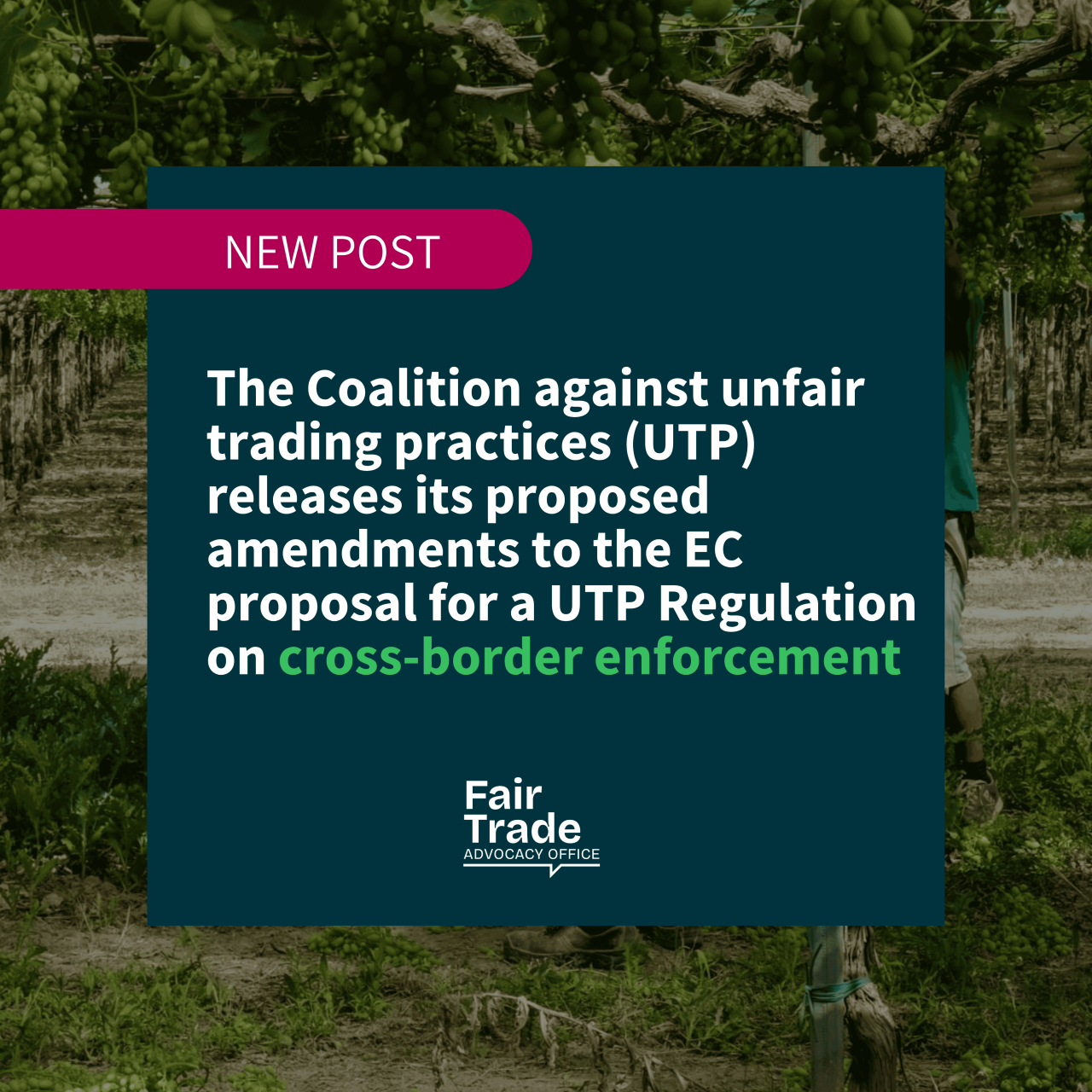Report on the implementation of the EU Unfair Trading Practices Directive beyond the EU - Rwanda
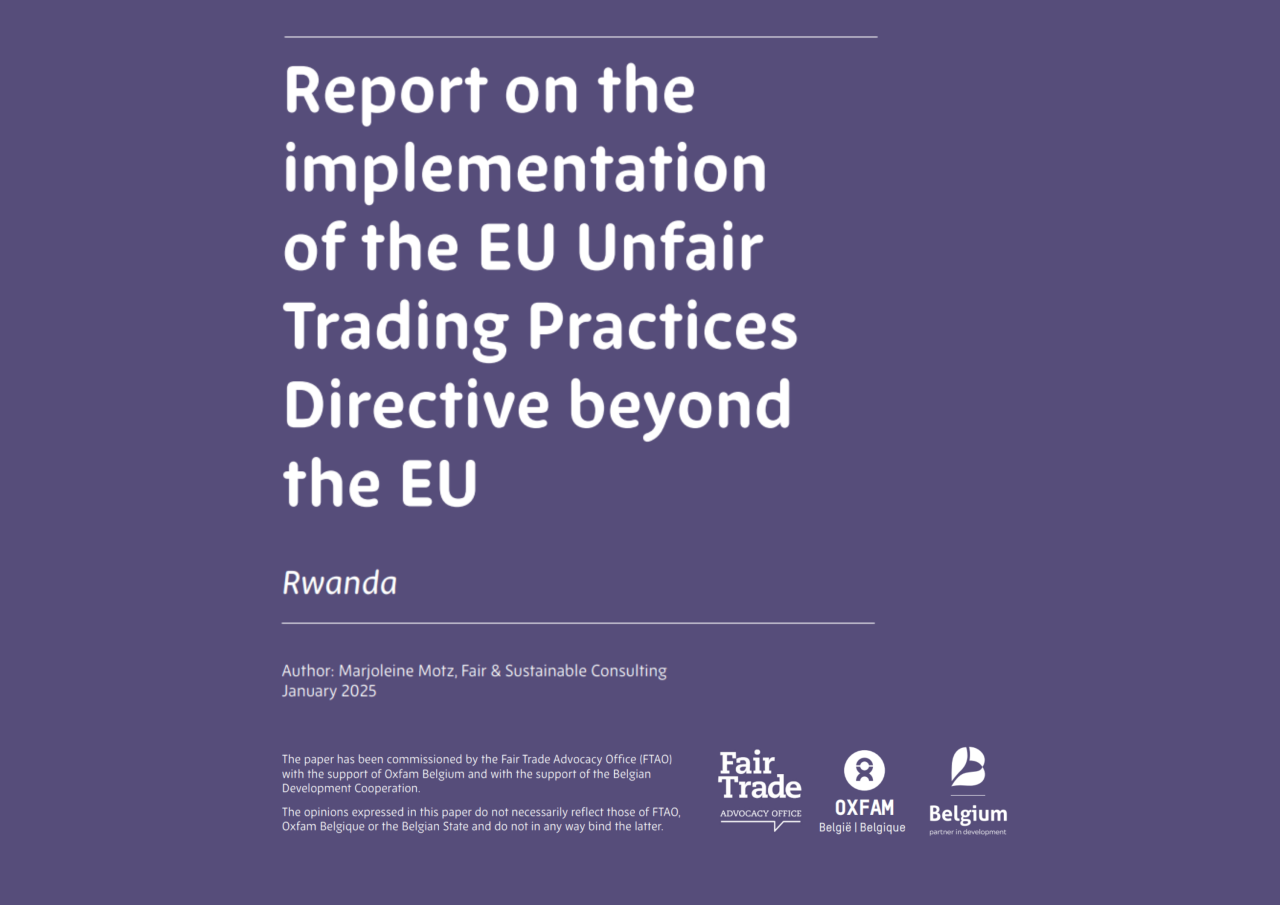
The Directive (EU) 2019/633 to address unfair trading practices (UTP) in business-to-business relationships within the agricultural and food supply chain is a tool that exists to protect actors in the agri-food chain against abusive commercial practices. One crucial element of this directive is that it does not only protect EU farmers and suppliers, but it also protects non-EU suppliers as long as they have a contractual relationship with an EU-based buyer. This report contains on-the-ground data on the implementation (or lack thereof) of the UTP directive by non-EU suppliers. It will centre around the two following topics.
- Firstly, offering insights into the extent to which non-EU suppliers selling to the EU can effectively benefit from the directive, i.e. having access to legal information regarding their rights, and the right tools to file a complaint while remaining anonymous. And, if we found that they lack information or legal resources, suggesting ways to address this situation.
- Secondly, identifying what unfair trading practices which are not covered by the Directive are problematic for agri-food producers and should be banned in the future.
This report consolidates insights from interviews with several stakeholders involved in the export of agricultural products, combined with the results from the survey. We reached out to several exporters in the horticulture and coffee sector in Rwanda working with smallholder farmers or farmer groups and managed to interview 4 horticulture exporters (out of 6 contacts) and 1 coffee exporter. Additionally, we interviewed 2 sector organisations being Fairtrade Africa and IDH as well as the National Agricultural Export Board (NAEB) on their support to the respective sectors and their experience with UTPs.
More From The Workstream
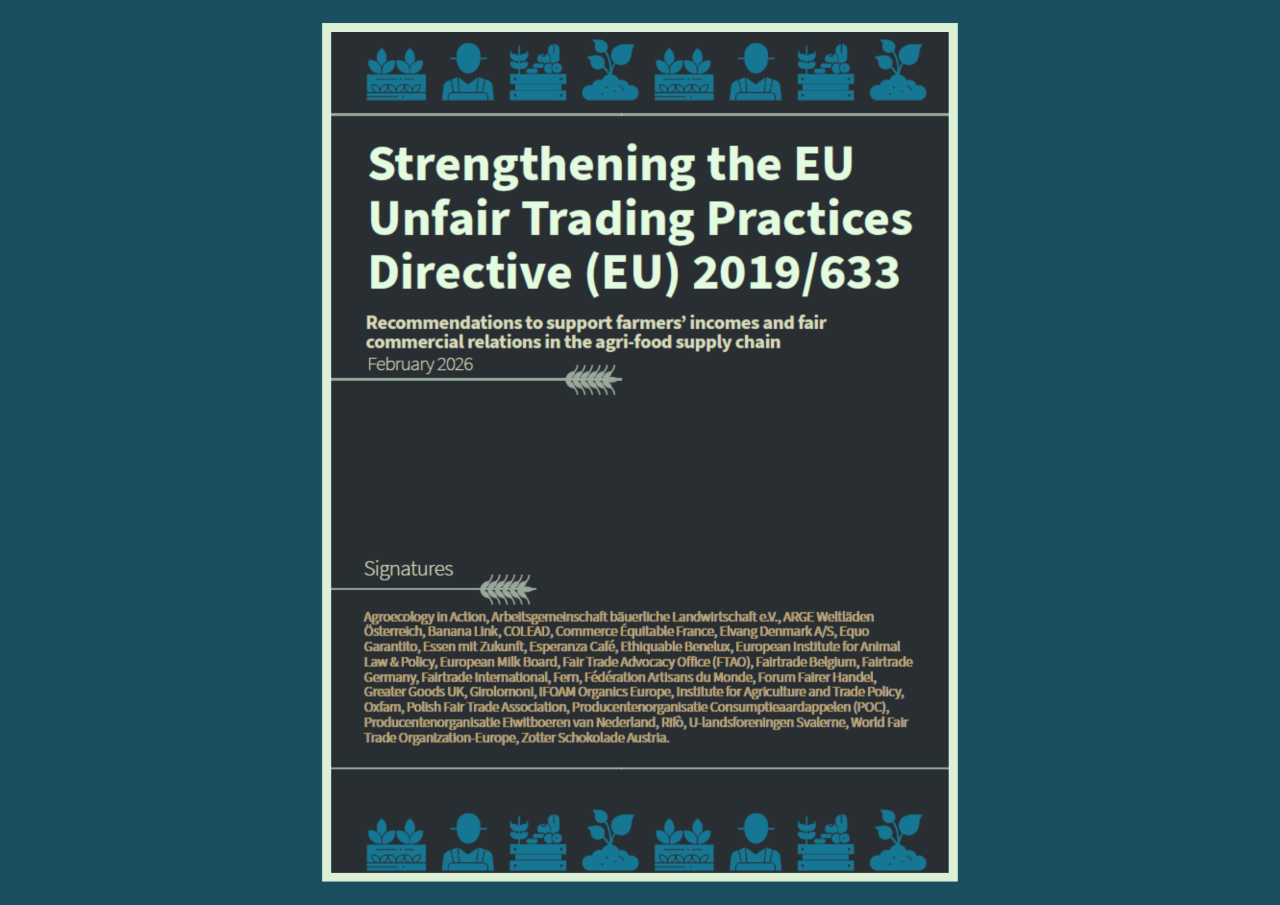
Joint position paper: Strengthening the EU Unfair Trading Practices Directive (EU) 2019/633
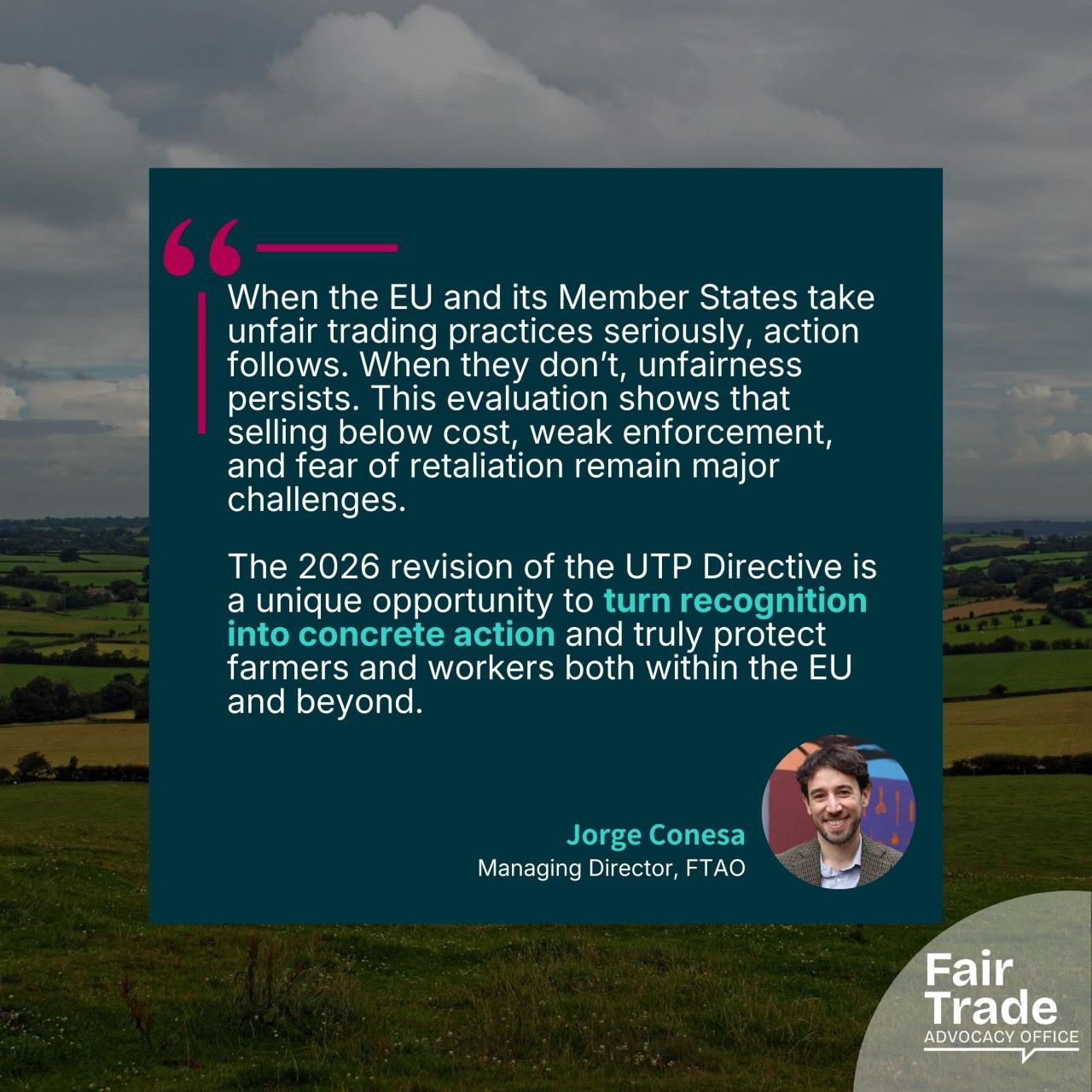
The FTAO acknowledges the EC's evaluation of the Directive on Unfair Trading Practices and welcomes its analysis aimed at closing the remaining gaps
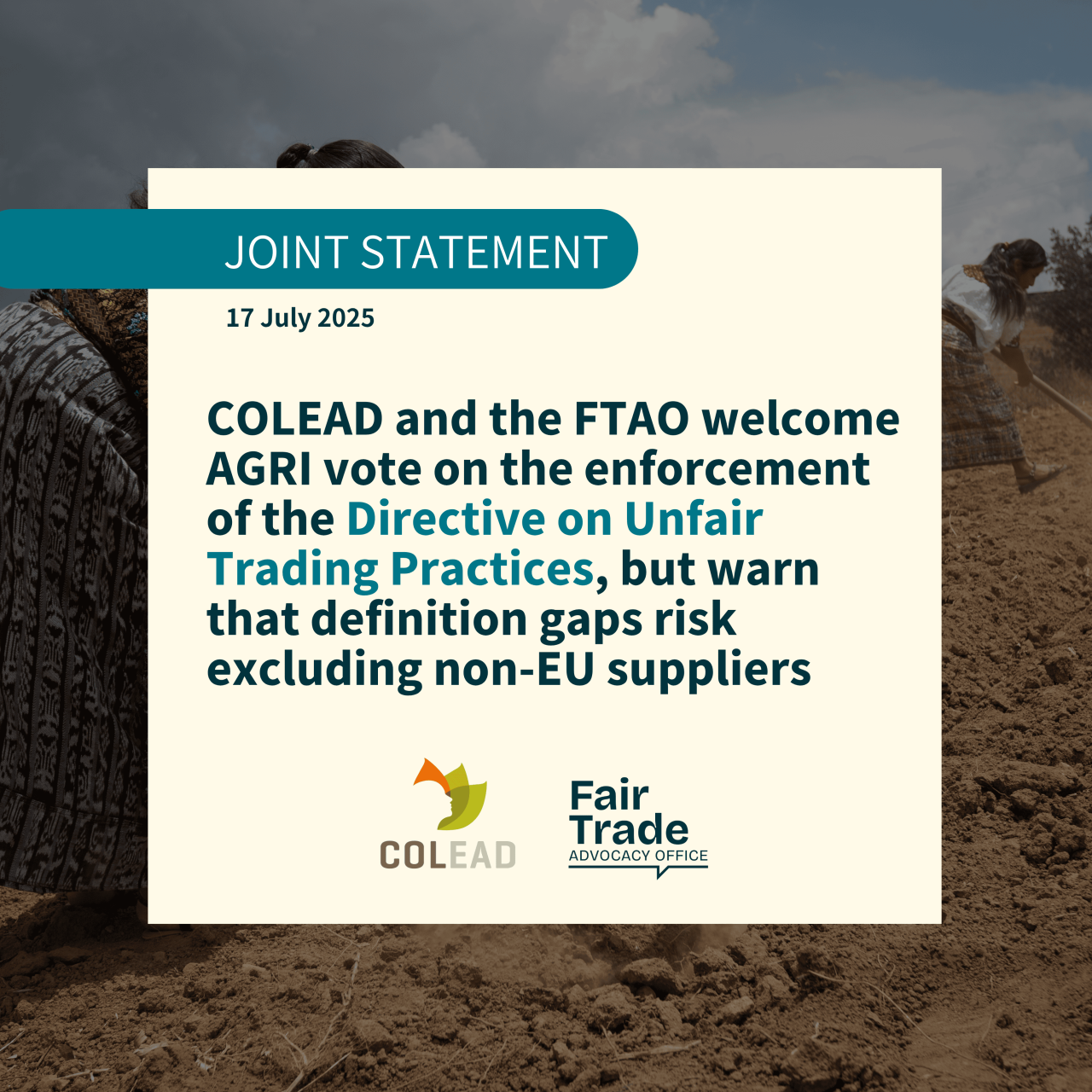
COLEAD and the FTAO welcome AGRI vote on the enforcement of the Directive on Unfair Trading Practices, but warn that definition gaps risk excluding non-EU suppliers
